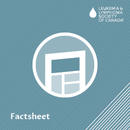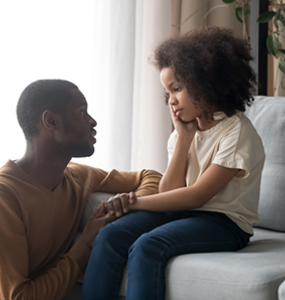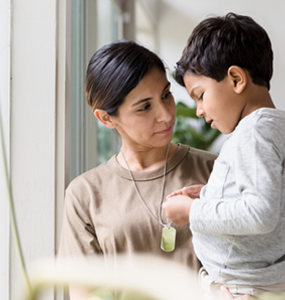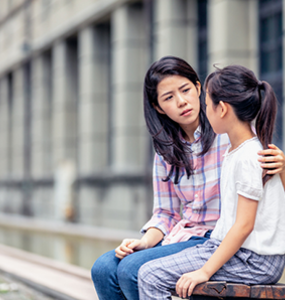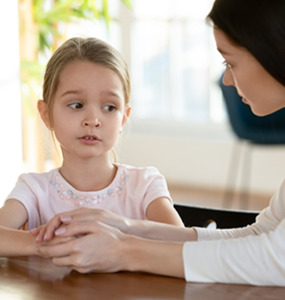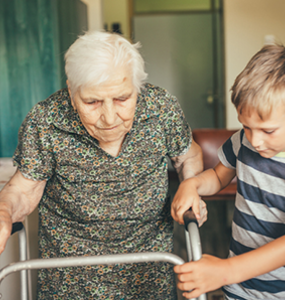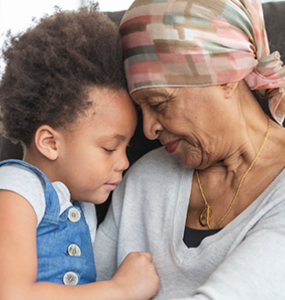Deciding how or if to tell your (grand)children
You may think telling them might scare, worry or burden them. No matter your reason, know that children, whatever age they may be, often sense that something's wrong. Not telling them could make them feel worried from not knowing what’s bothering you. They may even blame themselves for thinking they have done something wrong. On the other hand, being honest and open with your children or grandchildren about your illness gives them the chance to talk to you about how they feel and how they may be able to help.
Tips for talking to children about cancer
Talking to Children
Use words and ideas that are right for their ages.
Use their questions as a guide to what they want to know.
Encourage them to talk about their fears and concerns.
Ask someone else to do the talking.
Ask them for help.
Remind them how much you love them.
If you need help
Tips for talking to your adult (grand)children
Your relationship with your adult children or adult grandchildren may change with your cancer diagnosis. You may now need to lean on them for emotional support, help around the house, getting to and from appointments, or assisting with your physical care. For this reason, you may hesitate to tell your adult children or grandchildren because you don’t want them to worry, feel burdened by your illness or be inconvenienced in their already busy lives. Still, it’s important that your loved ones, especially close family members, know about your cancer.
Pick a place where you can talk privately.
Choose a time when no one is rushed so you can say everything you need to.
Tell them what you know as soon as you feel ready.
Be honest about how you feel.
Give them a chance to offer their help and support, if they can.
If you need their help and have no one else to turn to, tell them.
Explain the decisions you would like them to make about your care if it happens that you can no longer make those decisions yourself.
For some adult children or grandchildren, this may be the first time they are hearing about cancer or about a serious illness affecting a loved one. They may not react as you expected. Give them time to process your news in their own way and at their own pace.
